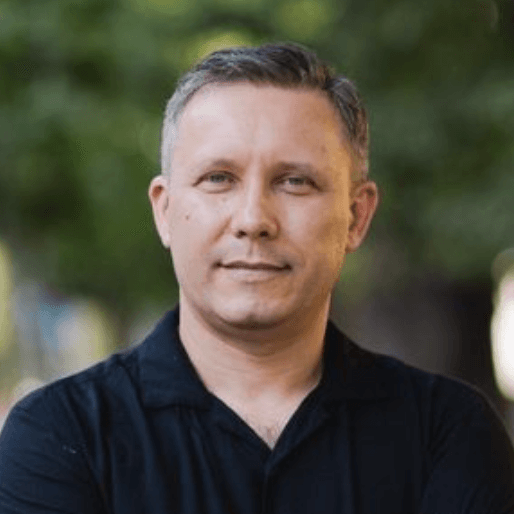Outsourcing customs services to foreigners, its unification with the tax service, splitting from the tax service, creation of a single inter-regional customs, three-fold decrease of the number of customs offices, termination of territorial legal entities of the customs. Some of these plans remained on paper only, some have been fulfilled and some will be fulfilled.
The government’s changeable position on the way customs should operate has emasculated the agency and resulted in its takeover by the tax service. The functions of customs got closer to fiscal – customs officers are more focused on collecting taxes than on preventing violations.
In late 2018, the government decided to split the customs and tax services again. Recently the customs got a new boss – Maksym Nefyodov, who has been First Deputy Minister of Economic Development and Trade until now. Nefyodov is known for successfully implementing reforms in public procurement, he is the mastermind behind the ProZorro system.
He has yet to learn about the customs business. It is clear from our conversation that he does not have answers to all questions. No specifics have been provided as to change of customs functions and the ways to hold people accountable for corruption and illegal trafficking.
When talking to journalists Mr. Nefyodov announced a number of drastic changes: from the necessity to adopta Customs Code to change of structure for the new body.
Nefyodov’s ability to act will depend on the new government. If a new Minister of Finances is appointed, Nefyodov risks finding himself in a zone of political discomfort and, similarly to his predecessors, he may get into a clinch with the new minister, head of tax service and law enforcement bodies.
VoxUkraine met the official at Takava café and asked about the future of the customs, his plans on fighting illegal trafficking and refusal to run for parliament.

— Who will be working at the Ministry of Economics instead of you?
— I don’t think there will be a substitute right now. We can appoint someone new no sooner than in two weeks’ time. We have agreed with Stepan Ivanovych (Kubiv – ed.) that I would continue working and consulting ProZorro colleagues on some issues.
— Today it is popular to run for the parliament under a party list. Why are you not running?
— I would make an average politician. I am a manager first and foremost. I think I can do a lot more here. Besides, I think enough people are running for the parliament and nothing will change drastically whether I become an MP or not.
We turned out to be an actual talent factory. When I say “we” I mean those “left” of our group of reformers. BRDO people went with Sluha Narodu (Servant of the People) and ProZorro people joined Holos (Voice).
— Your friend, operational director of ProZorro. Sales, Andrii Motovylovets, joined Servant of the People. Why did the people go to different parties?
— It is their personal choice.
— So it does not mean that ProZorro favours the Servant of the People party list?
— ProZorro financial director, Andrii Kuzmenko, runs as a candidate from Holos elected directly in the district. I am sorry, but what else should I say
— For instance, that you are creating your lobby in the parliament.
— I feel as if I were a microoligarch (laughs). I have so many acquaintances now: in Ukrainian Strategy (Volodymyr Hroysman’s party – ed.), in European Solidarity (Petro Poroshenko’s party – ed.)…
If I am being serious, this proves how political leaders really assess the reforms we are implementing and the human resources potential that we have. I am pleased that people who have worked on our projects are in demand. It is their personal credit. I was not asking favours for any of them and was not recommending any party lists.
— The competition for the position of head of customs was marked with scandal. There have been reports that you were promoted as priority candidate. Our sources also said you would win. Then Petro Poroshenko Bloc deputy, Andrii Antonyshchak, said the competition was orchestrated. Do you have any explanation for this?
— I put up a post on Facebook about the situation. I was surprised by the quantity and quality of candidates. I was expecting that at least one partner from each big law firm that works with taxes would enter the competition. But they did not.
If we look at the quality of candidates, it looks sad. I would be happy to have somebody better than me come to the customs and the Ministry of Economics or any other sphere so that I could have no regrets about leaving and going back to business.
I do not want to hand out any assessments to my competitors, of how good or bad they are, but I would definitely urge more people to apply for such competitions.
— Why did Antonyshchak file a claim? It did not look like he was trying to have the best candidate chosen. He was aiming at you specifically.
— I should probably take this as a personal compliment. People see me as a threat without even knowing my plans for customs reforms.
— If the Minister of Finances Oksana Markarova leaves the government, you risk finding yourself in a zone of political discomfort.
— If I get appointed by the Cabinet of Ministers, it means public service and contracts that last couple of years. This level of stability is enough. This is not a position of deputy minister or minister who can be fired easily. The other thing is how comfortable the working conditions are going to be. It is clear that the Ministry of Finances, the customs and the tax service are one chain.
I am not ready to work with any Minister of Finances or simply fulfill orders coming from the top. I have stated this clearly to all the political stakeholders I was talking to. I am ready to work to achieve a result.
Not in the sense that I am wearing a white coat and everybody else is worse than me so I am telling them what they should do. My work means that I do not tolerate half-measures in my area of competence. I will not say as other “reformers” did, “I do not control these two departments. They told me not to go there and I do not.”
I can’t and won’t work like that. If they try and appoint my deputies using the quota principle or appoint the “untouchable” people, I will definitely leave.
— Do you have any vision for your team, your deputies?
— I will spend the next two weeks interviewing people. I did not bring any person that I knew before to the Ministry of Economics. We only worked together with Oleksiy Sobolev at Dragon Capital. I found all the others via FB, recruiters and competition.
— Have you coordinated your activities with respect to division of State Fiscal Service with the new head of tax service Serhii Verlanov yet?
— We have a very good relationship with Serhii Verlanov. I have a lot of respect for him. We will try to do this in the most efficient way possible. We will not argue about offices and positions.
— This is about deeper issues – division of databases and functions.
— There is no doubt regarding the databases: the customs keeps its own databases and the tax service keeps its own, too. We are doing integration and mutual exchange of data between them. We previously discussed the idea of transferring databases to the Ministry of Finances. Right now, it is an open question. It has to do with institutional capacities.
From a technological point of view, it is better to build an IT system at customs. In a hypothetical future, we would need one data storage for all state bodies where they would each store their information but it is still a long way to go.
— What are your plans with regard to the customs? What were the tasks set for you?
— Nobody has set any tasks for me – neither the President, nor the Prime Minister, Oksana Markarova (Minister of Finances – VoxUkraine) or the IMF.
One thing is clear: the customs is a problem. We need to turn it into something nice, something that will not be associated with corruption, bribes, delays of cargo, illegal trafficking, violations, lines, illicit schemes.
Regarding solutions to problems, there is no single recipe here. We need to do everything at the same time. I suggested five main things.
The first one is digitalization. It is the main method of fighting corruption and inefficiency. In procurement and at customs the state unfortunately cannot afford quality officials with high salaries. The customs currently employs 10,300 people. We cannot simply lay them off and hire new people.
We need to go along the path of maximum automation of processes. On the one hand, it will simplify the job of public servants and on the other hand, it will hinder the opportunities for making corrupt decisions. It will also make trade easier. Digitalization is a powerful tool for improvement of business climate.
The second bloc is staff reform. Personnel changes are the same for all organizations. We need to understand who our personnel are, how we are planning to hire new people, train them and then assess their activities, how we will promote or fire them.
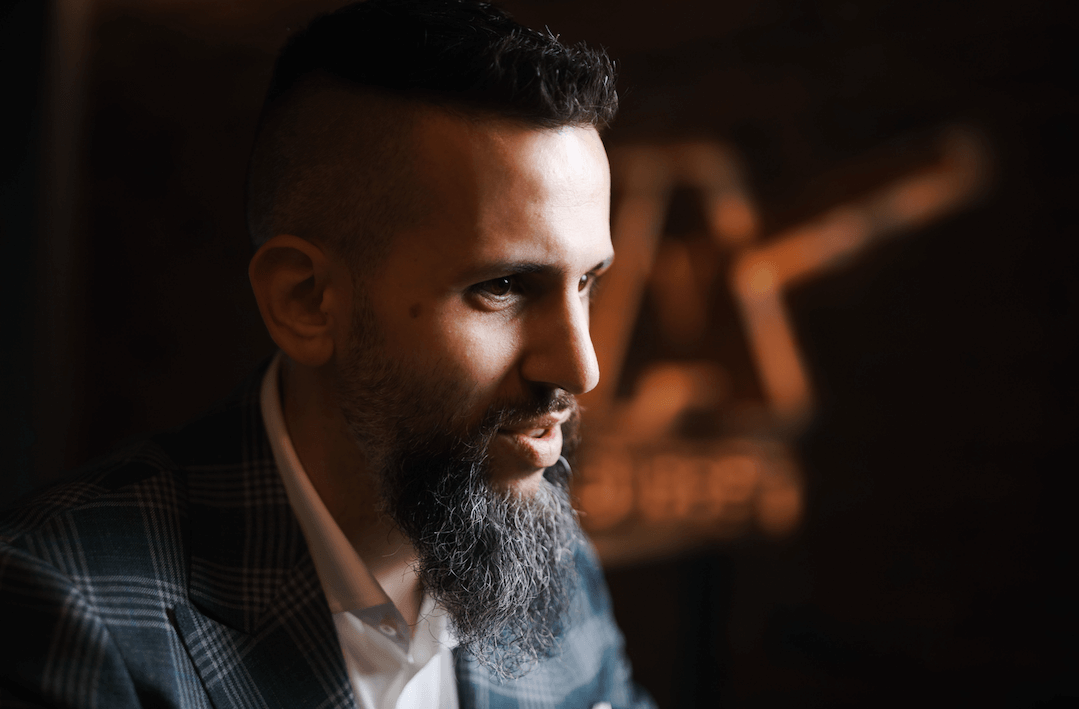
— You said we currently have 10,300 customs officers. Is it a big or a small number?
— Out of this number 6,000 have the “stamp”, i.e. they are actual customs officers. The rest are staff. The number depends on the model. If we look at the German model where customs is a law enforcement body, then we would need to double the number of customs officers. I am not a supporter of this.
If we compare ourselves to Poland, we still do not have a lot of customs officers. I am not saying that we need to increase their number immediately. I am against increasing the number of public servants. As a person of liberal views, I am all for having less public servants but right now we can decrease their numbers only in view of administrative functions. It is impossible to lay off 2,000 people for no reason.
Yet, in context of uniting customs offices, it is realistic. At customs offices, especially where there is no border, administrative personnel makes up the majority of staff.
— What do you mean by saying unification of customs offices?
— We currently having 26 customs offices and this is too much. I would want to have five or six. Where is the challenge? Our labour laws require for all actions to be coordinated with the superior. For a person to resign, their superior needs to issue a resignation order. If one manager will have to sign all the sick leaves, annual leaves and appointment orders it will become a living hell.
— Serhii Verlanov believes that when splitting the State Fiscal Service 70% of tax officers shall be transferred to the new tax service. What is your model? Should current officers continue working at customs?
— I would like to have a drastic cleanse of customs officers but this is not physically possible right now. It will be a gradual holistic (comprehensive – EP) process. Ideally, I would want the Law On Public Service to not apply to customs officers. Instead, I would hire them on contractual basis – for a year, three years or five years.
I want to have the opportunity to set not only individual but also group KPIs. I would change the organization structure of the customs drastically.
— In what way?
— I would implement a structure that operates in large IT companies. There, work is organized around a specific product not a subdivision.
A product is, for instance, quality postal delivery service, organization of local border traffic, import and export of goods. Customs officers may be divided not within departments but along the areas of work with each specific product. I think this type of organization could be a lot more interesting.
The customs has three main tasks: customs security, promotion of international trade and collecting revenue. The last task is the most important for us. The main function of the customs is for the “white” goods to be transported quickly and for the “black” not to be transported at all.
I would really like to experiment with the “product” approach so that the customs could rethink its functions and understand them in a broader context. These functions lie not in putting stamps and issuing a customs declaration but in ensuring quality border crossing process. Otherwise, it all comes down to tossing papers and looking for ways to benefit from it all.
— During the meeting that Volodymyr Zelensky has with representatives of business, entrepreneurs complained about illegal trafficking. The President said he had fired a number of heads of state administrations because they were involved in illegal trafficking. Are you planning on changing heads of customs in those regions?
— Definitely, we need to change the personnel at customs offices. Each state body, and customs is no exception, roughly consists of three groups of staff people.
There are people that the state body is based on. Many of them are professionals who form its core. There is also the grey mass that goes along with any position of management. If the superiors tell them to work honestly, they work honestly. If the superiors say they can rob caravans, so they do.
There are also people who are impossible to reach a compromise with. These are the people wearing expensive watches and driving expensive cars. The latter group should at least be fired and it is advisable that they are brought to justice and incarcerated.
I often say that a person can perform some technical tasks, they can be taught to work in IT system but you cannot teach them to be honest. I do not know how to do it. These people need to go.
— So you are not going to do checks of customs officers in the 15 regions (similarly to how Zelensky fired 15 heads of regional state administrations – ed.)?
— We need to respond and fire the people against whom there are apparent complaints. Yet, I do not know members of the teams that well to be able to give names. We can run fair competition which will bring back the old staff members. We will trade bad for worse. We need to change the system at its core.
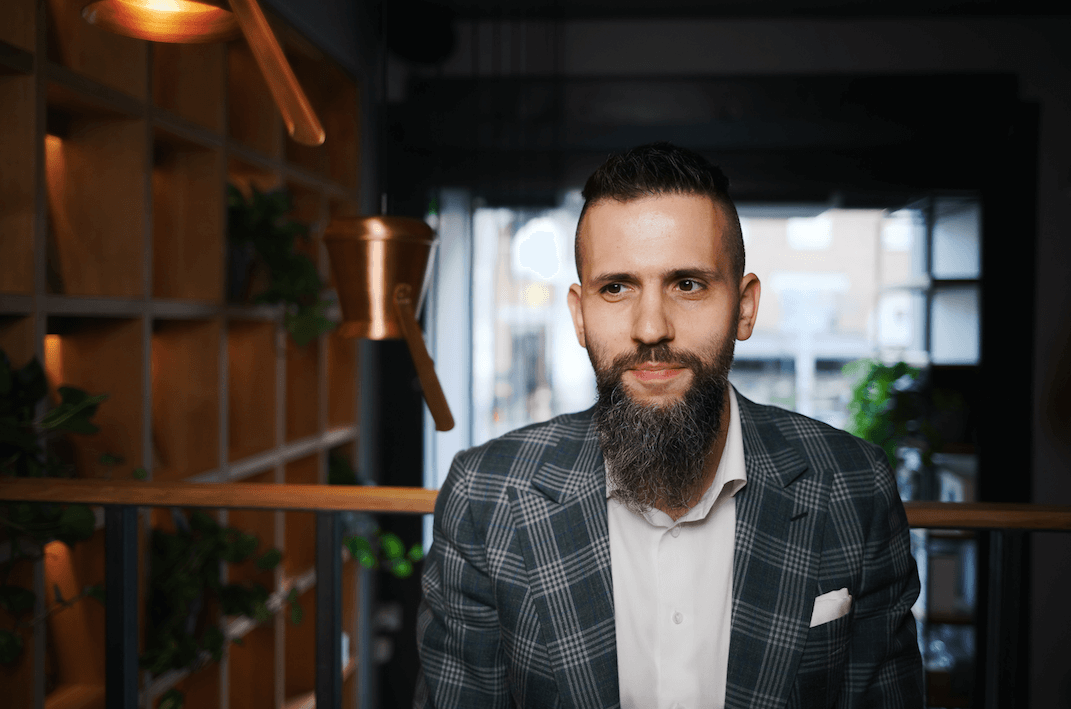
— Perhaps, it would make sense to change competition criteria?
— This is not the only thing that needs to be changed, we also need to change the process. If people understand that the process is built in such a way that their corrupt rent is dropping significantly, the risks are increasing and they need to work in a different way, they will not come.
Latent corrupt people do not apply to ProZorro because they know that they have nothing to gain there. We should build such a system where even if a corrupt individual comes on board, they would need to think hard to be able to steal.
— You mentioned two priorities of your job. What are the other three?
— The first one is digital customs. The second one is personnel rejuvenation. The third one is customs infrastructure. We are not only speaking of the notorious scanners that I feel ashamed to even mention but also the automatic scales, automated scanning of numbers, rotating cameras.
We used to have those. There was a subdivision which could monitor what was happening at specific checkpoints while physically staying in Kyiv. Brigades even had a person in their midst whose duty was to look into the camera. When the camera started rolling and noticed violations, the person signaled, “Guards, recall (cancel – EP)!”
We need to create infrastructure that would help eliminate lines. If there are lines on the border, there is motive for corruption.
The fourth priority is integration into the European (EU – EP) customs community. The customs does not exist on its own. Harmonization of Ukrainian legislation with the European legislation is top priority. And, of course, updated Customs Code. There is no relevant Customs Code at the moment, we need to create it.
— Do we need a new Customs Code?
— Definitely. First of all, the exiting code has little in common with the European norms. Second of all, it has many not feasible things in it. It allows for anything to undergo customs clearance anywhere. This creates unhealthy competition between different customs offices.
— Competition for the amount of payments collected to fulfill the plan?
— I would quote Pelevin here, “This unspoken assumption is the essence of our young democracy.” It is wrong to think that any type of goods can be brought through any checkpoint and get customs clearance anywhere.
The right approach is to centralize the experience and infrastructure according to the type of product. One checkpoint will be for clothes and textile. It will have a quality check laboratory. Another checkpoint will be used for fruits and vegetables.
— When will the common customs control start working?
— To achieve mutual recognition of the results of customs checks we need to start exchanging information.
— No information exchange blocks things not only for the customs.
— In 2018 Eurostat showed 160 million euros in shoes export while Ukraine only got 40 million euros. It is a complicated question. And a huge chunk of work.
The customs is overloaded with fiscal services. This is the result of some functions prevailing over the others. There is no risk-management in place. We need to remove everyone from the customs who are not customs officers, especially the law enforcement.
— So you are saying that representatives of other government bodies should not be there?
— They should not be there at all. There are issues of border crossing and customs clearance. The dream of each body is to be included into customs declaration so that without their signature the goods cannot get in. We have recently had this grueling fight to exclude the control of ecologists over ballast waters. They believe a ship cannot start moving until they had the ballast waters checked.
We suggested that ecological, trade and certification issues be solved separately. There are currently 40 bodies associated with the customs!
I was not the first one to voice the genius idea to have them all removed from the customs. It is a question of compromise and search for the optimum scheme of work in each specific case. The thing is that I have never heard of somebody actually being bothered by this, to be honest.
— The focus of customs on collecting revenue is determined by the fact that at the time of united agency the tax service in a way took over the customs. This inferiority of the customs took a toll on its functions. In your opinion, do we need to restore some of the functions of customs officers or reinforce them?
— Definitely reinforce them.
— In what way?
— There is no single model here. Europe has customs checkpoints which function solely for checkup and are in fact law enforcement bodies. In Ukrainian reality, I am against the customs becoming a law enforcement body. Do we need to eliminate the operative function altogether? I do not think so, because who will record the crimes then?
If we have a situation when a customs officer looks under a car and finds smuggled goods, then what? Do they need to wait for the police to come?
— In 2018 the Ministry of Interior and Ministry of Finances came together and as part of the fight against illegal trafficking allowed the police to stay at customs.
— It is a classic theme: let’s have everybody at customs.
— Did it bring any result, did it help fight illegal trafficking?
— It is a rhetorical question. In theory, the more people we have at the customs, the harder it is to negotiate. We can add investigative journalists, Avtomaidan, ATO participants and amber miners to the mix making negotiations even harder. Yet, this model does not look too well.
Probably, some law enforcement bodies can stay at customs. Still, it is just too much to turn the customs into a body that stops cars and checks them for cargo that is being transported with violations. There should be somebody else doing that.
— Who?
— Financial Investigations Service. And the police should be doing the physical stopping.
— And the same service should track the movement of goods that were brought into the country illegally and got to city markets? Track the chain and the customs checkpoint that the goods came from?
— I think so.
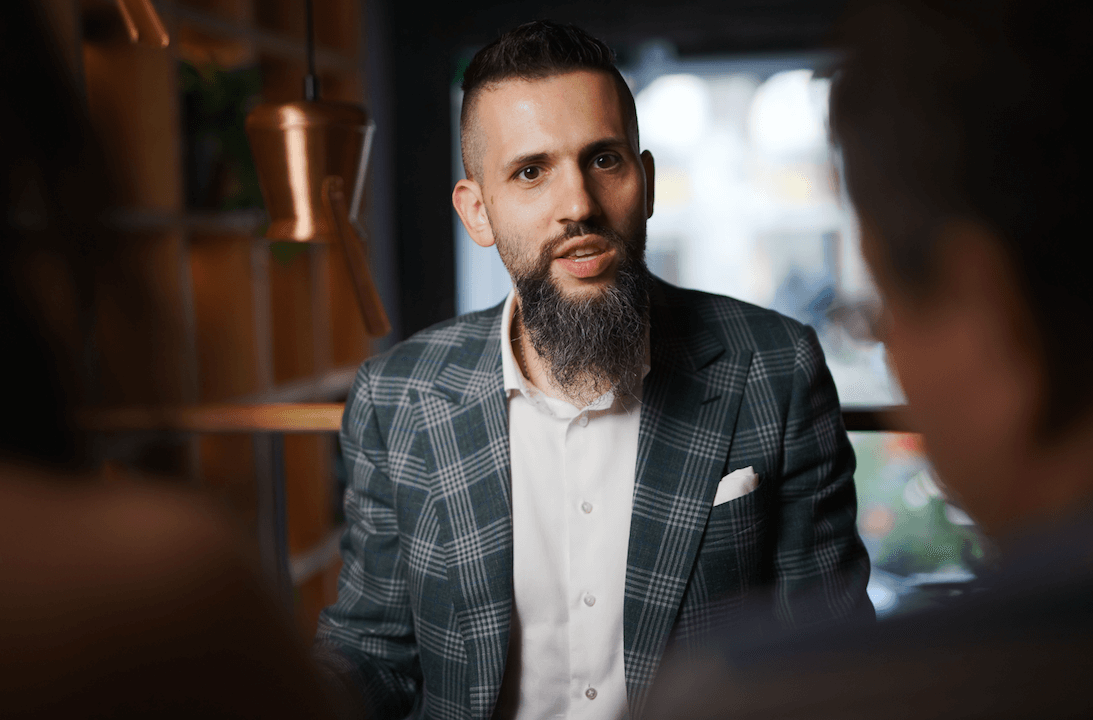
— Thus, the fight against illegal trafficking turned out to inefficient. Maybe the punishment is too lenient? Perhaps, it would make sense to bring back criminal responsibility?
— First of all, we need to use the right terminology. Illegal trafficking implies drugs, weapons, slaves. It entails criminal responsibility. What we call illegal trafficking in daily conversations is violation of customs rules.
Do we need to criminalize them? It is impossible to criminalize customs rules in our country with our judiciary and law enforcement systems. It will not play against those who are willing to give bribes. Bribes still lie outside the legal field. The return of criminal responsibility may be easily used against regular people.
Remember when the Security Service was initiating cases because of a camera in a watch or spare parts for a drone, which they considered spy equipment? I am ready to see this as my mandate – protecting people in cases like this.
— Financial Investigations Service has not been created yet. Maybe we should keep some of the auditors at customs?
— The ideal situation is when there are no auditors at customs at all, when all inspections are performed remotely with the use of technical means and electronic exchange. The auditors can settle their issues later and not when the goods have been detained and are waiting on the border. This refers to law enforcement and the Security Service in particular.
— What does it mean “settle their issues later”? Does it mean that a person first talks to border guards, then goes to the customs, then to ecologists, then to the Security Service…
— This is a very bad model. I understand that it is better for these people to be attached to border crossing as the goods are either imported or not. It is one thing when you have been detained at the airport and you are staying at a waiting room. It is another thing when you receive court summons and you need to go to court with a lawyer.
Obviously, if hazardous products are entering the country, there is no need to wait for court decision. This is risk-oriented approach. Yet, in most cases the issue can be solved without detaining, sealing and storing a shipment. I do not think it is the best way to check goods.
I do not really like the situation when a huge number of government bodies are trying to have their approval, signature and seal included into the customs declaration which they later use to exert pressure on business.
We can probably have preliminary voluntary goods declaration. Those who are willing to declare information voluntarily and in advance can work under simplified procedure. If we catch them committing a violation, they will lose this privileged status.
— During the meeting of Volodymyr Zelenskyi and business representatives, director of MTI Group Volodymyr Tsoy said that after appointment of Ivan Bakanov as Acting Head of the Security Service the flow of illegal trafficking had gotten worse.
— This problem cannot be solved using spot measures, e.g. firing of let’s say five people from the department “K”. Ok, we fire them. Do these five really control the situation in the country? Schemes are impossible to implement without involvement of customs bosses. When they say that the bad shift managers are to blame and the superiors know nothing about it, I do not believe them.
— Business circles urge to stop using indicative prices of 2008.
— Our customs has problems wherever you go, pardon me for saying that. Not just with indicative prices. There is a problem with customs value correction.
On the one hand, subjectivity of customs officers is a bad thing. They can adjust customs value themselves and decide what the prices for goods should be.
On the other hand, absolute trust in business leads to coffee that costs 10 cents per kilo and has all the paperwork in perfect order. We need to find a compromise. Probably, this compromise can be tilted towards wider possibility for adjustment along with increase of trust in customs.
In mid-term perspective, we will have automatic risk management running online when information is summarized for all carriages, prices and categories of goods.
I do not know what the fair price is. Somebody may have bought something at the higher price than on Rozetka or OLX but can we compare Rozetka price per unit with the price in Cherkasy region per 1,000 units with post payment period of 90 days and delivery across the region? No.
— Should the information about customs prices be public?
— I go for public. My ideology does not change with the place of my work. I have a very low level of trust in the state. Maybe somewhere in Japan other principles should be put in place but when everyone is convinced that people in procurement steal, the only way to fight it is to disclose 100% of information.
People tell me, “And what about the commercial secret?” And I tell them, “C’est la vie.” “And what about personal data? Somebody may see my signature.” And I tell them, “C’est la vie.”
— Volodymyr Zelensky announced increased control over demarcation line with uncontrolled territories. What does this mean?
— Hard to say, it was only the first meeting dedicated to this matter (at President’s Office – EP). At least the first one I have been to. Crossing of the demarcation line is a priority question for the new administration. It is a shame what is happening there. Corruption risks are huge. At the Administration of the President (President’s Office – EP) they want to get this sorted out and organize normal checkpoints.
The main idea is to complete construction of checkpoints and appoint responsible project managers for each of them. An idea has been voiced (and I like it) to collect user stories. We need to understand who the people crossing this border are, what they are doing there. It is a very non-trivial issue.
A certain number of people cross this border to get their pension. Others want to do some shopping as prices are much higher on the occupied territories. There are people who need to get medical treatment, who have an appointment with Centre for Administrative Services, who go to study. Others go to visit their relatives. People have different needs and those needs do not necessarily depend on checkpoint.
We can build the best checkpoint but people are going to Oschadbank, which is open from 9 AM to 4 PM, to withdraw money from the only ATM.
— Perhaps we should place an Oschadbank ATM at this checkpoint?
— Figuratively speaking. Or a Centre for Administrative Services. And we need to understand what kind of services the people want.
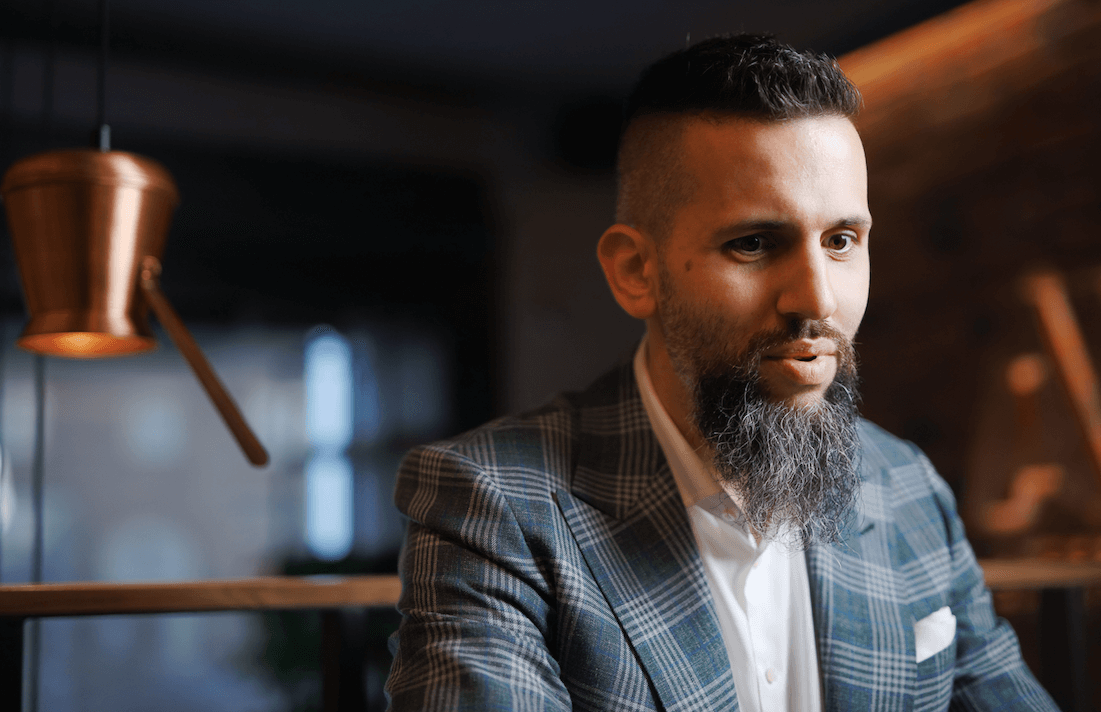
— What is your salary going to be?
— I do not know yet. I hope we will have a higher salary set for all customs officers. This does not concern Maksym Nefyodov only. If we cannot review salaries for all employees at once, then we will have to do that gradually. Salaries should be increased to market levels for each category of employees.
— According to personnel chart your salary with bonuses is between 60 and 70 thousand UAH.
— A bit more.
— According to your tax return, in 2018 you made 1.1 million UAH. That is 91,700 UAH per month approximately.
— That was gross salary. I do not know yet how much I will be getting at the customs. In government agencies it is impossible to determine the salary immediately. We need to do calculations.
— How did you agree to take on this job if you don’t know what your salary is? You are a young man, you have a family. You need to feed them.
— I look at things in a simple way. I am definitely not happy about this position as people have already warned me, “Get ready. Hire a bodyguard. They will burn your car.”
I believe in the window of opportunity concept. In business and in reforms. Right now we are having a unique window of opportunities at customs. We have not had one since Maidan. I did not have to run for this position and, let’s be honest, could find a much better job in the private sector or somewhere else.
Can a customs person be popular? No, they cannot. If we are going to fight illegal trafficking, then somewhere along the chain of certain products we may be getting short-term increase in their prices. It is one thing when a “black” smuggler, a millionaire, is hit, and it is a different thing when it touches upon people who are later selling such products. It is as if you are stripping them of work.
— For you becoming head of the customs is not about money is about ambition and challenge?
— When will we have the next window of opportunities for reforms at the customs? Maybe in two years, maybe never. Right now, we are having Markarova, we have the support of Kubiv, I understand that I will get support from many deputies representing different factions, who, hopefully, trust me personally because they saw me work during the past years.
Refuse all this? I would personally regret it. Yes, I can make more money in business but in 40 years I will look at myself in the mirror and think that I had a chance and I did not take it. Well, I might have two cars instead of one.
— According to your tax return your family owns two cars. Audi A6 2016 and Infiniti EX35.
— One car is gone – it has been stolen. I do not know how to take it out from the tax return. National Agency on Corruption Prevention is not interested in deputies who own hundreds of land plots and real estate. They are mostly interested in people like me. The car was stolen but if I do not put it in my tax return for 2019, they will ask where it is or where the money is. I can already imagine this.
The last request I received from the National Agency on Corruption Prevention had to do with check of accruals made to me at the Ministry of Economics and the incoming payments on my account.
— We had a look at Kubiv’s tax return. He has a smaller salary than you do.
— Stepan Ivanovych refuses bonuses and other additional payments and transfers them to us, even though we don’t need that.
— You were accused of being the cover for the activities of Stepan Kubiv who was accused of corruption on numerous occasions.
— How can I cover or not cover for him? I am not ready to comment on these accusations. I am ready to be accountable for my actions and the actions of my colleagues.
Obviously, politics is the art of compromise.
— What were the things you were not able to do at the Ministry of Economic Development and Trade?
— I was not able to find a drastically different approach to reforms of administrative services. I made several attempts and failed. That is why I support creation of IT Ministry and consolidation of these functions within such ministry. The functions are currently dispersed.
I never found a contractor or somebody who could sell software for the good digital services platform. I looked everywhere – from the largest contractors in the world, e.g. IBM, to small companies and Ukrainian developers.
I did not find a solution I was comfortable with. Perhaps, I was too busy with other duties. Maybe, it is my personal failure but I am not happy with the result.
Attention
The author doesn`t work for, consult to, own shares in or receive funding from any company or organization that would benefit from this article, and have no relevant affiliations

